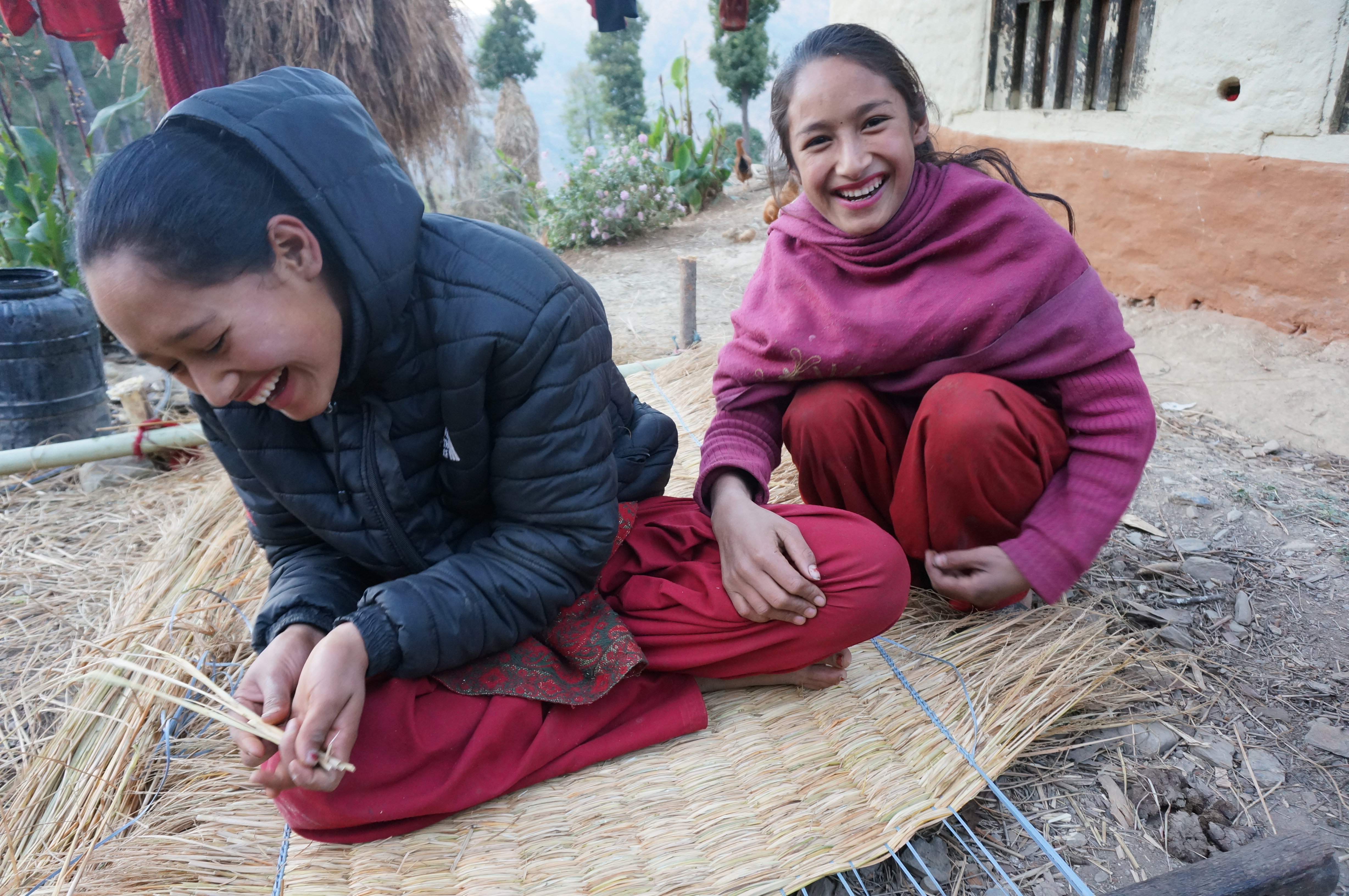
Recently, GO-Micro-Entrepreneurship Development and Tevel b'Tzedek have come together in a joint venture in order to continue to create sustainable local communities in Nepal. The goal of the joint venture “GO” is to support entrepreneurs in the transition towards sustainable independence by the development of micro-businesses. Tevel b’Tzedek is an Israeli NGO that believes in working together with impoverished communities to enhance their livelihood, capacity, and wellbeing. Tevel b'Tzedek provides the platform, infrastructure, and knowledge in the field of community development with over a decade of experience in Nepal. GO-Micro-Entrepreneurship Development provides knowledge in the field of micro-entrepreneurship with vast experience working with women in the establishment of their businesses in Israel. Additionally, they supported the construction of the work outline of the project based on the model that was developed in Israel.
The project is being implemented in communities that Tevel b'Tzedek works with, both in rural villages in Nepal’s Ramechhap district and in Kalimati, an impoverished neighborhood in Kathmandu. The pilot consists of twenty entrepreneurs in various stages; some are beginning to form a business and some are looking to expand their existing venture. The businesses are in numerous fields such as commercial farming, noodles-making, running a general shop or stand, tailoring, local crafts (such as carpets and Thanka paintings), and more.
We have come to understand so far that there are differences between the needs of the entrepreneurs in the village and those in city. In the village, there are better support systems, social capital, and more access to local financial systems needed for business management, such as cooperatives. This is due to the fact that usually it is easier to form a microfinance group in the village. These benefits in the village can be crucial to the success of the entrepreneur.
The pilot project takes place in villages that Tevel b'Tzedek is phasing out from after four years of work. There is a synthesis between the phase out process, which encompasses the transfer of full responsibility to the community, and the work model of the project. One of the core beliefs of the project is that most of the “knowledge” already lies with the entrepreneur. A big part of the work involves assembling the knowledge and emphasizing the strengths of each entrepreneur. The local staff work closely with the entrepreneurs; they provide knowledge and skills on a personal and group level, which includes building a business plan, identifying the vision of the entrepreneur, breaking it down into goals and a work plan, marketing, financial work in regards to the household and business, offering institutions as sources for a loan, group support, and more.
The potential impact of the pilot is to promote a sustainable local economy. The income of individuals, families, and the community as a whole will grow, creating job opportunities and the chance for people to sustain themselves in the village rather than having to look for financial opportunities elsewhere. This pilot can therefore help reduce migration to cities and thus reduce related vulnerability, which is a current issue in Nepal.
The central working assumption that drives the pilot is the importance of proactivity, initiative, willingness of the entrepreneur, and the aspiration she has to build or expand her business. The spirit of the entrepreneur becomes important when entrepreneurs decide to take action on the current situation relating to themselves and, as a result, on the community. In some of the communities we work with, there is a severe lack of water and local traditional agriculture is not sufficient to create sustainable income, which has led people in the village to create new opportunities for work and manifest the “entrepreneurial” spirit. Every business that sprouts from the community increases the overall income of the municipal unit. For example, one of the entrepreneurs we work with intends to open a shop that will sell groceries that are not attainable in the village. In this way, people from the community will buy these groceries in the local market instead of driving to Kathmandu or other cities. If people in the community have more income, there is a bigger chance that they will stay in the village instead of seeking job opportunities elsewhere. Finally, people who find their current income insufficient and need to adjust its source can do so, young adults and families can find a source of income in the village and stay, and the community’s welfare will be more sustainable.
Maya Whitefield


